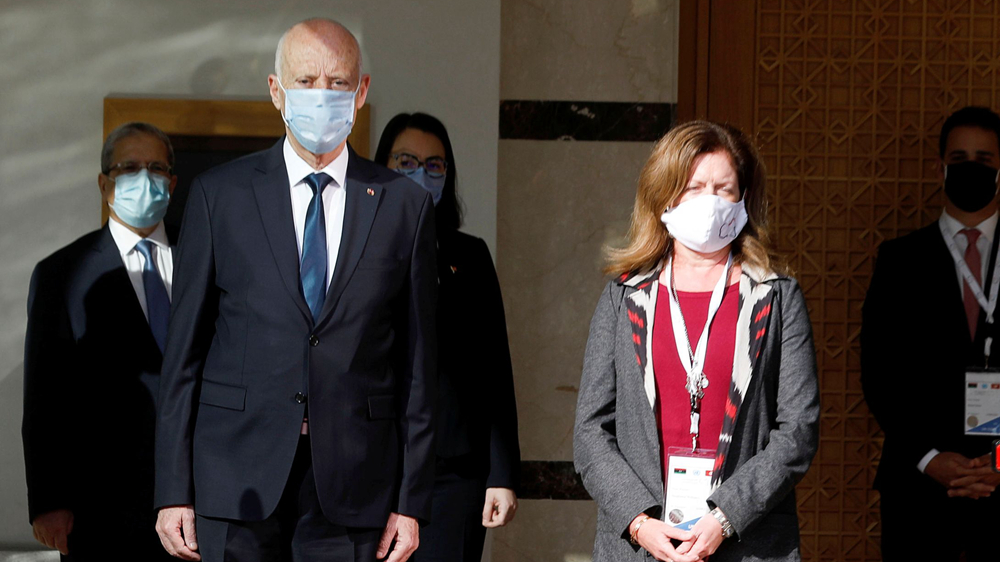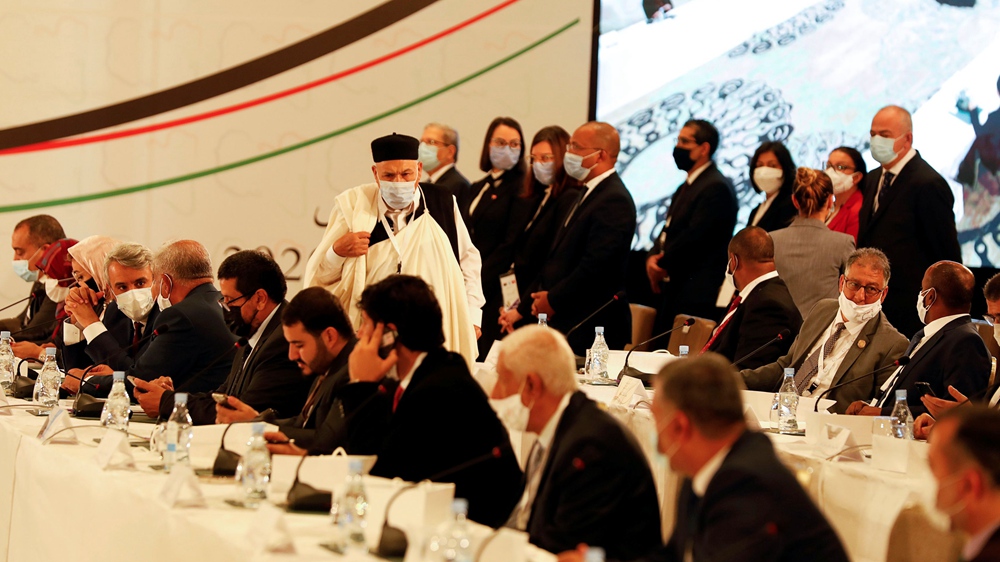
Tunisia's President Kais Saied, 1st from left, and Deputy Special Representative of the UN Secretary-General for Political Affairs in Libya Stephanie Williams arrive at the Libyan Political Dialogue Forum in Tunis, November 9, 2020. /Reuters
Tunisia's President Kais Saied, 1st from left, and Deputy Special Representative of the UN Secretary-General for Political Affairs in Libya Stephanie Williams arrive at the Libyan Political Dialogue Forum in Tunis, November 9, 2020. /Reuters
Libyan participants in UN-led political talks taking place in Tunis agreed on Friday to hold parliamentary and presidential elections on December 24, 2021, the United Nations said, raising hopes for an end to decade-old conflict.
The announcement came on the fifth day of political talks in Tunisia, involving 75 delegates from existing state bodies and groups from across Libya's political and social spectrum. This also marked the first concrete decision at the Tunisia talks, and the elections announced for December next year would be the first polls in Libya since 2014.
"Reaching elections requires a new executive to unify the country. This requires the establishment of a reformed presidency council and an effective and unified government of national unity," the acting UN envoy Stephanie Williams said.
"It's a very important date for Libyans," she said. "It will be a day when they can ... renew the legitimacy of their institutions."
However, many Libyans remain skeptical that the peacemaking efforts will end nearly a decade of chaos and bloodshed following the 2011 killing of Muammar Gaddafi.

Participants attend the Libyan Political Dialogue Forum in Tunis, November 9, 2020. /Reuters
Participants attend the Libyan Political Dialogue Forum in Tunis, November 9, 2020. /Reuters
Talks after ceasefire
The administration would be charged with providing services and preparing for national polls, as well as tackling an economic crisis and a coronavirus outbreak that has killed over 900 people in the oil-rich North African country.
The Tunisia talks are held in parallel with military discussions in the coastal Libya city of Sirte to fill in the details of a ceasefire deal struck in October.
The ceasefire formally ended more than a year of fighting between forces of the UN-recognized Government of National Accord based in Tripoli and those of eastern Khalifa Haftar.
Some Libyans questioned the legitimacy of the 75 delegated selected by the United Nations, and some analysts feared a government resulting from the talks could struggle to gain legitimacy and face pushback from members of existing institutions.
But Williams said the momentum was against "status quo" actors "trying to maintain their current privileges."
"The international community has tools at its disposal to prevent spoilers, including through the use of sanctions," she said.
The Center for Humanitarian Dialogue, which is helping to facilitate the talks, said the new government would not need a vote of confidence from Libya's House of Representatives.
(With input from agencies)

